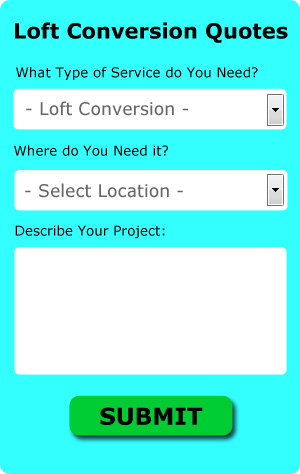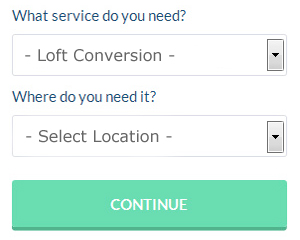Plymouth Loft Conversions (PL1): One of the ways to add a further room to your house and substantially increase the worth of your property in Plymouth is to do a loft conversion. This is often viewed as one of the better ways to improve the value of your property. You may find this alternative even more irresistable when you realise that you may not even need planning permission.
I guess one of many questions that will be foremost in your head at this stage is "what will it cost"? The ultimate cost will be determined by the sort of loft conversion you do and the kind of property that you own. A figure of £35,000 is currently the typical price for a loft conversion in in Plymouth (2020), yours may be more expensive than that or possibly it could be less. There are less expensive methods by which to improve the value of your property (a garage conversion for example), so if this is too pricey for you, there are various other alternatives.

You'll be spoilt for choice when the time comes to make a decision on what you should do with the newly created room you get with your loft conversion. It might be that you like the idea of a playroom where your kids can enjoy their own quality space, maybe you want to build an office where you can work in a relaxed and calm environment, or perhaps you need an additional bedroom or two to accommodate your growing family. No matter which of these you intend to do with it, a loft conversion is a cost efficient and simple solution to achieve this.
There are some lofts that are not suitable for converting, so check before you get too involved. Getting a specialist round to double check that your loft can actually be converted should be one of the first things you do. One factor is the total height of the loft space, if it is greater than 2.2 metres you should be on track. With nothing more than a ladder and tape measure, you can clamber up into your loft space and check this yourself. The kind of roof is also an issue, roofs with trusses are more expensive and trickier than ones with rafters.
Though there are some exceptions, loft conversions in Plymouth will not need planning permission. To figure out if any of these exceptions apply to you, contact your local planning office before pressing on. This is something that your selected Plymouth loft conversion company should be able to do on your behalf. You'll also have to get building regulations approval, which is covered by a different department to that which provides planning permission. To become acquainted with the building regs which affect this sort of development, talk to the local building control office.

Styles of Loft Conversion: The main kinds of loft conversion that you'll come across in Plymouth are: hip-to-gable loft conversions, dormer loft conversions, mansard loft conversions, velux loft conversions, loft pods, roof lift loft conversions and roof light conversions.
Many homeowners in Plymouth decide to get a loft conversion, because with the aid of scaffolding, almost all of the hard work can be completed externally. Disruption on the inside of your house, should for that reason, be minimal. It is a much less stressful experience when you are able continue your daily routine as normal without needing to handle dust and mess.
Loft conversion is available in Plymouth and also in: Estover, Pomphey, Torpoint, Lipson, Devonport, Bickleigh, Wembury, Hartley, Home Park, Keyham, North Prospect, Mutley, Plym Bridge, Camels Head, Derriford, Peverell, and in these postcodes PL1 2JT, PL1 1HA, PL1 1EJ, PL1 1HH, PL1 1WW, PL1 2AX, PL1 1LY, PL1 2BP, PL1 2LY, and PL1 1JU. Local Plymouth loft conversion specialists will likely have the postcode PL1 and the dialling code 01752. Verifying this should make certain that you are accessing locally based providers of loft conversion. Plymouth property owners are able to benefit from these and countless other comparable services. To obtain loft conversion estimates, click the "Quote" banner.
Cellar Conversion
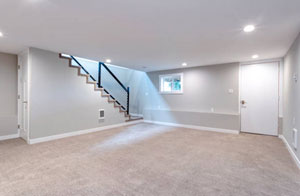
Cellar Conversion Plymouth: If your house just isn't a good candidate for a loft conversion, a basement or cellar conversion another splendid way to add further living area. Generally speaking, only older houses (ie: Victorian or period properties) are suitable for this form of conversion. In some instances there are also properties built after the war with cellars which are ideal for converting. A cellar conversion won't just generate extra space but will also help solve troubles with dampness. In many instances basements/cellars are merely wasted space with the tendency of merely using them as dumping grounds for worthless bric a brac. You could easily turn your cellar into an office, a games room or a gymnasium and make it a great deal more than simply storage. A guest room or a kitchen/dining room are among the other possibilities if your cellar is big enough.
GET A QUOTATION FOR A CELLAR CONVERSION HERE
Building Regulations and Loft Conversions

Whether or not you need to get planning permission for your loft conversion, it must still abide by the relevant building regulations. This is vital to make certain that any building work carried out on your loft conversion is safe and structurally sound and meets the minimum requirements for accessibility, energy efficiency and safety. The type of loft conversion that you're planning on having will impact on which specific building regulations apply to you. In most instances sound insulation, loft stairs, fire safety, doors, floor joists, walls, electrics, windows and drainage are among the elements that could be subject to building regs when doing a loft conversion. To learn which building regulations apply in your case, you can either chat to your architect or loft conversion contractor or visit local Plymouth building control office..... READ MORE.
Garage Conversion
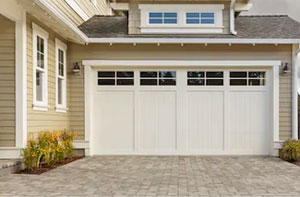
If your home in Plymouth is not suitable for a loft conversion, or if this solution is out of your price range, you could look at doing a garage conversion instead. Obviously, not all garages in Plymouth are suitable buildings for conversion either, and this option is only possible if the garage isn't being used for parking a vehicle. A garage conversion in Plymouth can be completed more easily, and can be achieved at somewhere around a quarter of the price of converting an attic.
If all the construction work is internal and the main structure of the garage is not being extended, a garage conversion in Plymouth will not normally require planning permission. Exemptions to this guideline do exist on recently built housing estates and in certain conservation areas. You should really talk to your local planning department before proceeding with a garage conversion in Plymouth. Because doing a conversion on your garage can add up to 20% to the value of your house in Plymouth, it's definitely a process that's well worth looking at. A pretty swift result can be achieved, and with minimal disruption or mess. Favourite ideas for garage conversions are dining areas, granny flats, kid's play rooms and gyms.
Dormer Windows Plymouth
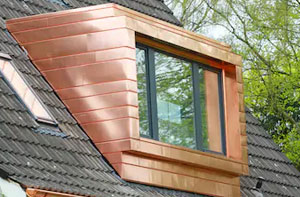
Dormer windows are one of the best ways to add more space and light into your loft, and as there are varied sorts of loft conversion in Plymouth, you can also find distinct types of dormer windows on offer. The most frequently seen types of dormer construction include: shed dormers, flat roof dormers, hipped dormers, gable dormers and eyebrow dormers. The easiest of these dormers to build and probably the most frequently used in Plymouth would be the flat-roofed dormer. This pattern furthermore generates the most additional space of the other kinds, therefore it is functional as well as economical, even so it might be viewed as slightly less desirable than some of the other options. Eyebrow dormers are very beautiful in the proper location and consist of a curved roof on top of a low, wide window, they have not got any straight sides. Shed dormer windows resemble flat roofed dormers, providing a roof (single-plane) sloping at an angle less than that of the house roof. Hipped dormers are appealing, having three sloping surfaces similar to the existing roof, these can also be called hip roof dormer windows. Gable dormers are more appealing with uncomplicated pitched rooves more suitable for older homes, gable dormers are sometimes known as gable fronted dormers ot dog-house dormers.
To Summarize

When you examine all of the possible options, doing a loft conversion is certainly one of the the simplest ways that you can add additional living space or another room to your property. In essence it results in a lot less mess and disruption, it's economical, it increases the value of your property, it does not enlarge the footprint of the property and it will possibly not require planning permission. This will naturally depend on whether or not your house is suitable for a loft conversion, with older properties in Plymouth typically being more suitable due to the construction of the roof. Modern properties (in general those built since the 1960s) with trussed roofs are unlikely to have enough space or height to do a loft conversion, though it isn't impossible in some cases. Why not get an expert in to take a look if you think that your house is suited to a loft conversion?
Plymouth Loft Conversion Tasks

Plymouth loft conversion specialists can normally help with Velux loft conversion, loft conversion advice, building control liason, partition wall installation, bespoke loft furniture, bespoke loft storage, farmhouse conversions, loft carpentry Plymouth, house extensions, loft extensions, estimation of loft conversion cost Plymouth, home extensions, loft boarding, loft repairs, loft conversion windows in Plymouth, loft plumbing, mansion block loft conversion, dormer loft conversion, loft remodelling Plymouth, roof light loft conversions, loft pods, loft conversion soundproofing, loft makeovers, loft conversion stairs, roof repairs or replacement, loft conversion plans Plymouth, bespoke loft conversion Plymouth, loft renovations, free loft surveys Plymouth, bungalow loft conversion and other loft related work in Plymouth, Devon. Listed are just a selection of the activities that are carried out by those installing loft conversion. Plymouth providers will be happy to tell you about their entire range of services.
Leave a Review for a Job Well Done
So as to get work and thrive in business, local companies and services need to get good reviews online, since these are what folks in Plymouth rely on nowadays to locate businesses they can trust. It is helpful for them if you could leave them a review when they have done a decent job or provided a great service, and it's useful for other people as well. Your first hand knowledge of the company will be beneficial not just to the business, but also to any prospective clients. Remember when you were looking for someone to do your loft conversion and how good or bad reviews helped you to decide. In the absence of those reviews, you would possibly have looked elsewhere, even if a specific company website seemed to be extremely professional and convincing.

However, when you're on a company's own website, exactly how much trust can be put on reviews that you see? Were actual clients involved in writing these, or were they "cooked up" by a company employee in order to make them look better?
There is another solution, because Google My Business reviews are an excellent way to look for genuine and sincere reviews. This is the review website which is trusted by millions of people to determine company reputations, and can affect their position in the search engines as well. Google My Business's serious rival and the second biggest local company review website is Bing Places for Business, which is Microsoft's alternative. You can help to increase the profile of a company that successfully worked on your project by writing a review on one of these sites, and at the same time create a rundown of the trustworthiness and standards that they provided. Equally as effective is posting reviews on Twitter and Facebook relating to your company. These social media sites are a major part of any small company's marketing and promotional advertising. Their sales message can be strengthened by your supportive reviews and give a starting point to relatives and friends who are trying to find similar services.
Whilst a hand-drafted thankyou letter is considered a bit 'old school', this is still entirely acceptable. These can be compiled to form a portfolio of reviews which is useful in one on one meetings with potential clients, put in a frame for display in company reception areas, or photographed and published on the business website. Whichever way you choose to provide a review, it is pleasing to feel that you've helped a small business get a foothold in the local marketplace.
Loft Conversions Near Plymouth
Also find: Devonport loft conversion, North Prospect loft conversion, Estover loft conversion, Peverell loft conversion, Lipson loft conversion, Torpoint loft conversion, Bickleigh loft conversion, Mutley loft conversion, Plym Bridge loft conversion, Pomphey loft conversion, Wembury loft conversion, Derriford loft conversion, Home Park loft conversion, Hartley loft conversion, Camels Head loft conversion, Keyham loft conversion and more. Loft conversion services are available in the majority of these locations. Transforming your underused loft space into a functional and stylish living area is well within the capabilities of these talented professionals. When it comes to maximising your home's potential, a loft conversion offers a cost-effective solution, whether you're planning to add a home office, an extra bedroom or a playroom. Local home and property owners can get loft conversion quotes by going here.
Finding Plymouth Loft Conversion Specialists
Ways to locate loft conversion specialists in Plymouth: Fifteen years ago a lot of people used local Yellow Pages, local newspapers or occasionally even cards in shop windows to search for tradesmen in Plymouth, but today's equivalent of that appears to be browsing business directories online such as Mister What, Yelp, Local Life, City Visitor, Touch Local, Thomson Local, 118 118, Yell and Cyclex, needless to say these internet directories do not all allow people to write reviews, therefore you don't necessarily get an idea of any particular loft conversion specialist's working standards. Another very popular solution to obtaining a loft conversion specialist in recent times is to check out web portals like TrustaTrader, Rated People, Checkatrade, My Hammer, Local Heroes or My Builder, and the key benefit of these is that they showcase client reviews and testimonials regarding each tradesperson affiliated with their site. The last tip is you ask neighbours and friends to suggest somebody they've used before.
Plymouth Loft Conversion Services
- Loft Specialists
- Loft Conversion
- Attic Truss Conversions
- Loft Conversion Estimates
- Loft Conversion Design
- Loft Extensions
- Loft Surveys
- Loft Conversion Regulations
- Bungalow Loft Conversions
- Loft Conversions
- Loft Conversion Ideas
- Dormer Loft Conversions
- Hip to Gable Loft Conversions
- Loft Solutions
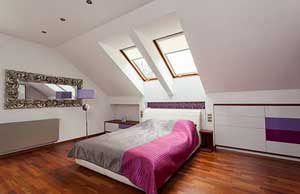 Loft Conversions Plymouth
Loft Conversions Plymouth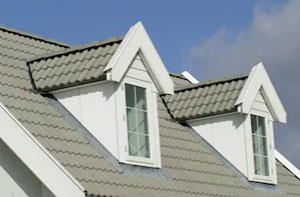 Loft Conversion Plymouth
Loft Conversion Plymouth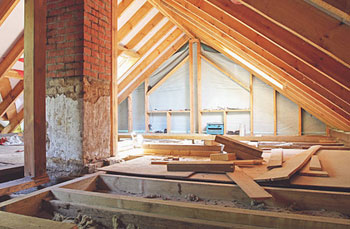 Loft Extension Plymouth
Loft Extension PlymouthMore: Loft Conversions, Loft Specialists, Loft Conversion Contractors, Loft Remodelling, Loft Conversion Firms, Roof Lift Conversions, Loft Extensions, Home Extensions, Loft Conversion Firms, Loft Conversions, Velux Loft Conversions, Mansard Loft Conversions, Hip-to-Gable Conversions, Loft Conversion Contractors, Loft Specialists, Loft Extensions, Cheap Loft Conversions, Hip-to-Gable Conversions, Loft Conversion Contractors, Loft Solutions, Dormer Loft Conversions, Home Extensions, Mansard Loft Conversions, Dormer Loft Conversions, Loft Solutions, Roof Lift Conversions, Loft Extensions, Loft Conversion Firms, Mansard Loft Conversions, Loft Conversion Experts, Loft Conversion Contractors, Loft Conversion Specialists, Loft Conversion Experts, Loft Conversion Specialists, Mansard Loft Conversions.
For the best local info about Plymouth, Devon go here
Loft conversions in PL1 area, and dialling code 01752.
TOP - Loft Conversions in Plymouth
Loft Conversion Stairs Plymouth - Loft Remodelling Plymouth - Loft Conversions Plymouth - Loft Conversion Plymouth - Cheap Loft Conversions Plymouth - Loft Conversion Near Me - Loft Conversion Ideas Plymouth - Loft Conversion Cost Plymouth - Loft Boarding Plymouth

